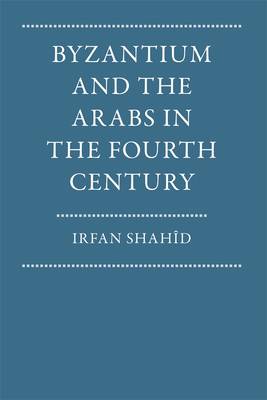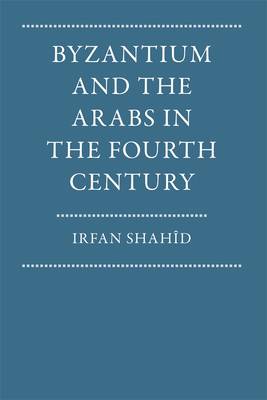
- Afhalen na 1 uur in een winkel met voorraad
- Gratis thuislevering in België vanaf € 30
- Ruim aanbod met 7 miljoen producten
- Afhalen na 1 uur in een winkel met voorraad
- Gratis thuislevering in België vanaf € 30
- Ruim aanbod met 7 miljoen producten
Zoeken
Omschrijving
The fourth century, the century of Constantine, witnessed the foundation and rise of a new relationship between the Roman Empire and the Arabs. The warrior Arab groups in Oriens became foederati, allies of Byzantium, the Christian Roman empire, and so they remained until the Arab conquests. In Byzantium and the Arabs in the Fourth Century, Irfan Shahîd elucidates the birth of the new federate existence and the rise of its institutional forms and examines the various constituents of federate cultural life: the phylarchate, the episcopate, the beginnings of an Arab Church, an Arabic liturgy, and the earliest attested composition of Arabic poetry. He discusses the participation of the Arab foederati in Byzantium's wars with neighboring Persians and Goths during which those Arab allies, most notably the Tanūkhids, contributed to the welfare of the imperium and the ecclesia. The Arab federate horse galloped for Byzantium as far as Ctesiphon, Constantinople, and possibly Najrân in Arabia Felix. In the reign of Valens, the foederati appeared as the defenders of Nicene Orthodoxy: their soldiers fought for it; their stern and uncompromising saint, Moses, championed it; and their heroic and romantic queen, Mavia, negotiated for it.
Specificaties
Betrokkenen
- Auteur(s):
- Uitgeverij:
Inhoud
- Aantal bladzijden:
- 658
- Taal:
- Engels
- Reeks:
Eigenschappen
- Productcode (EAN):
- 9780884024323
- Verschijningsdatum:
- 20/05/2025
- Uitvoering:
- Paperback
- Formaat:
- Trade paperback (VS)
- Afmetingen:
- 159 mm x 235 mm

Alleen bij Standaard Boekhandel
+ 225 punten op je klantenkaart van Standaard Boekhandel
Beoordelingen
We publiceren alleen reviews die voldoen aan de voorwaarden voor reviews. Bekijk onze voorwaarden voor reviews.








